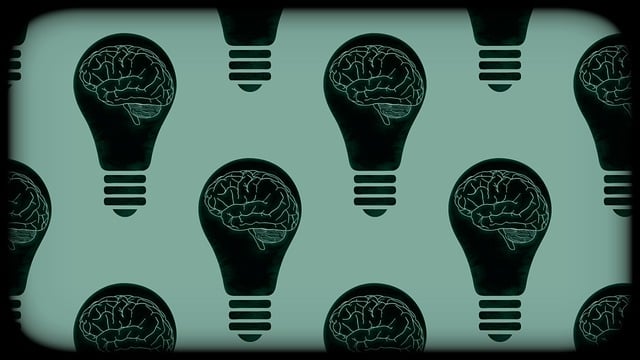The media's portrayal of mental illness profoundly impacts public perception, with stereotypical depictions perpetuating stigma and deterring help-seeking behaviors. Positive media representations, however, can foster empathy and reduce stigma through accurate narratives. Organizations like Westminster Anger Management Therapy (WAMT) combat harmful stereotypes by promoting understanding and emotion regulation techniques for conditions like anger management. WAMT's evidence-based approach emphasizes self-awareness exercises and tailored support, challenging societal misconceptions with nuanced storytelling. Collaboration between media professionals and mental health experts is crucial for accurate portrayals; partnerships like these reduce stigma, encourage self-care practices, and promote holistic mental wellness solutions like those offered by Westminster Anger Management Therapy.
In today’s media landscape, the representation of mental illness can significantly impact public perception and understanding. This article delves into the challenge of inaccurate portrayals and offers solutions for fostering positive change. We explore the profound effect media has on shaping societal views of mental health, highlighting issues through a case study of Westminster Anger Management Therapy. Strategies for promoting accurate and compassionate media representation are presented, emphasizing collaboration with industry professionals to revolutionize how mental illnesses are depicted.
- Understanding the Impact of Media Portrayal on Mental Health Perception
- The Current State: How Media Often Misrepresents Mental Illnesses
- Westminster Anger Management Therapy: A Case Study in Positive Representation
- Strategies for Promoting Accurate and Compassionate Media Portrayal
- Fostering Change: Collaborating with Media Industry Professionals
Understanding the Impact of Media Portrayal on Mental Health Perception

The media’s portrayal of mental illness can significantly shape public perception and understanding of various psychological conditions. Often, inaccurate or stereotypical representations in movies, TV shows, and news articles contribute to the perpetuation of mental health stigma. When individuals with mental illnesses are depicted as violent, unpredictable, or even villainous, it reinforces negative societal attitudes, leading to further marginalization of those suffering from these conditions. This can deter people from seeking help for their own struggles, as they may fear judgment or discrimination, especially in communities like Westminster where Anger Management Therapy is a sought-after service.
Conversely, positive media representations can foster Mental Illness Stigma Reduction Efforts by encouraging empathy and understanding. Portraying individuals with mental health challenges as relatable, complex characters who overcome obstacles through self-care practices and professional support can help normalize discussions around these topics. By promoting accurate and diverse narratives, the media plays a crucial role in shaping a more compassionate society where people are encouraged to prioritize their mental well-being, engage in effective Stress Management techniques, and adopt beneficial Self-Care Practices.
The Current State: How Media Often Misrepresents Mental Illnesses

Media often perpetuates harmful stereotypes and misrepresents mental illnesses, contributing to stigma and misunderstandings in society. Portrayals of individuals with mental health issues are frequently limited to dramatic or exaggerated narratives, focusing on symptoms rather than the person as a whole. This is particularly evident in television shows and films where characters with disorders like anxiety or depression are often depicted as weak or overly emotional, failing to capture the complexity and diversity of real-life experiences. As a result, the public may form inaccurate perceptions, assuming that all people struggling with mental health issues behave similarly.
For instance, anger is commonly portrayed as an uncontrollable and aggressive emotion without considering underlying causes such as trauma or past experiences. This simplistic representation fails to acknowledge that anger is a normal human response that can be constructively managed. Organizations like Westminster Anger Management Therapy offer valuable guidance on coping skills development, emphasizing the importance of understanding and regulating emotions rather than suppressing them. By promoting accurate representations and providing resources for mental wellness journaling exercises and compassion cultivation practices, media can play a crucial role in challenging societal norms and fostering empathy among viewers.
Westminster Anger Management Therapy: A Case Study in Positive Representation

Westminster Anger Management Therapy (WAMT) stands as a beacon of positive representation in media portrayal of mental illness, particularly focusing on anger-related disorders. This therapy program offers a unique and innovative approach to addressing issues like rage and violent outbursts by prioritizing self-awareness exercises that empower individuals to understand their triggers. Unlike stereotypical depictions in media often characterized by exaggerated or simplistic narratives, WAMT presents a nuanced view, highlighting the complexity of human emotions.
Through structured sessions led by experienced professionals, WAMT incorporates evidence-based techniques to enhance empathy building strategies among both patients and mental health professionals. By prioritizing risk assessment as part of its methodology, this therapy ensures that individuals receive tailored support while mitigating potential risks. This holistic approach not only promotes healing but also fosters a deeper understanding of mental health challenges, challenging societal misconceptions and advocating for more empathetic and accurate representation in media and popular culture.
Strategies for Promoting Accurate and Compassionate Media Portrayal

Media portrayal plays a significant role in shaping public perception about mental illness. To promote accurate and compassionate representation, media outlets should collaborate closely with mental health professionals. This partnership can ensure stories are told from firsthand experiences, offering authentic narratives that challenge stereotypes. By incorporating diverse voices, including those from marginalized communities, the industry can foster cultural sensitivity in mental healthcare practice. Encouraging sensitive and nuanced storytelling helps reduce stigma and encourages viewers to seek support when needed.
Additionally, media has the power to promote self-care routine development for better mental health. Through educational content and relatable characters, they can inspire audience members to prioritize their mental wellness. For instance, highlighting accessible therapy options like Westminster Anger Management Therapy can guide individuals toward resources tailored to their needs. Such initiatives contribute to a more inclusive and supportive environment, reflecting the importance of holistic mental healthcare approaches.
Fostering Change: Collaborating with Media Industry Professionals

In fostering change regarding mental illness representation in media, collaboration between professionals from the industry and mental health experts is paramount. By joining forces, these stakeholders can ensure that stories and characters with mental illnesses are portrayed accurately, empathetically, and in a way that promotes understanding rather than perpetuates harmful stereotypes. Westminster Anger Management Therapy, for instance, has actively collaborated with film and television producers to educate them on the Mind Over Matter principles applicable in stress management and conflict resolution, both on-screen and off. These partnerships have resulted in more nuanced narratives that not only challenge the mental illness stigma but also offer viewers a glimpse into the complexities of living with these conditions.
Media professionals play a significant role in shaping public perception, and their commitment to Mental Illness Stigma Reduction Efforts can be transformative. Through workshops, consultations, and inclusive storytelling practices, they can help dispel myths and misconceptions. By embracing diverse narratives, media industry leaders can create a more accepting society where individuals struggling with mental health issues feel seen, heard, and supported—a goal that Westminster Anger Management Therapy wholeheartedly advocates for.
Media has a profound impact on shaping societal perceptions of mental health. The current narrative often perpetuates harmful stereotypes, misrepresenting mental illnesses as rare or dramatic. However, initiatives like Westminster Anger Management Therapy offer a more accurate and compassionate perspective. By collaborating with media professionals and implementing strategies for positive portrayal, we can foster an environment where mental illness is normalized, understood, and treated with the same empathy as physical health issues. This collaborative approach is vital to challenging negative representations and ensuring media reflects the diversity of human experience with mental health in a nuanced and accurate light.














